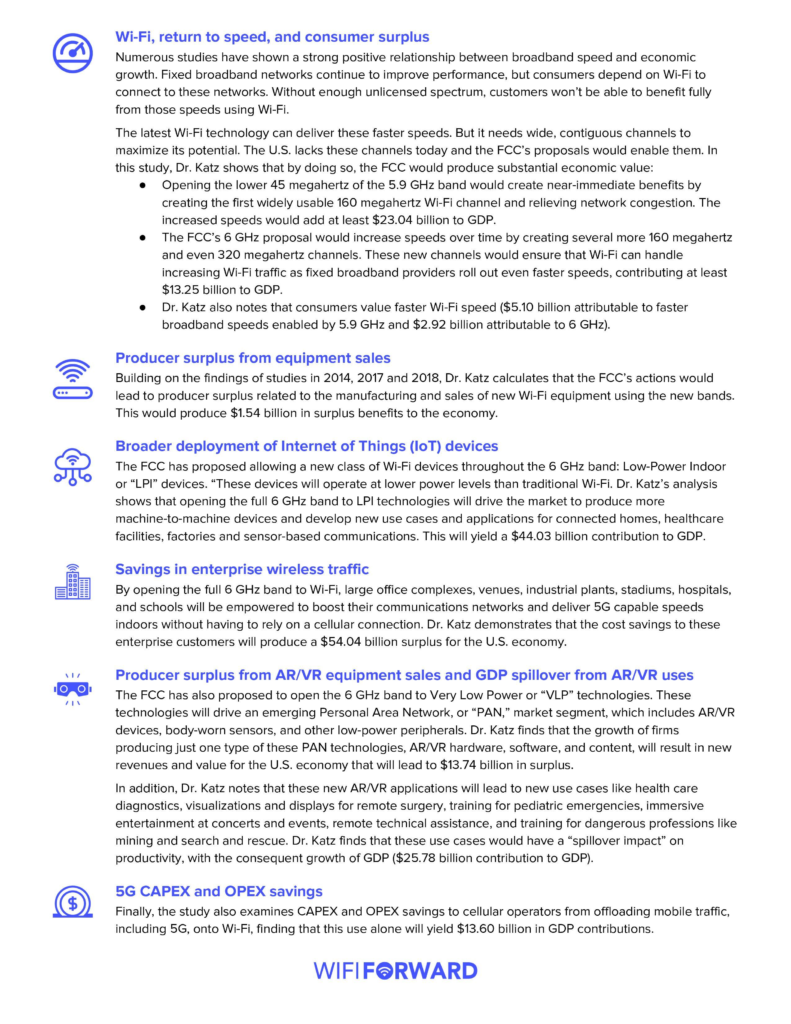Two pending Federal Communications Commission (FCC) Wi-Fi proposals would add at least $183.44 billion to the U.S. economy over the next 5 years. This is the finding of a new study by Dr. Raul Katz, a leading scholar of economics and telecommunications policy, on the FCC’s proposals to open the 5.9 GHz band and 6 GHz band to Wi-Fi.
The FCC’s proposals will create a wide array of economic benefits:
– Increase broadband speeds, accelerate deployment of the Internet of Things (IoT), and support the augmented reality/virtual reality (AR/VR) market— adding $106 billion to the U.S. Gross Domestic Product (GDP).
– Allow producers to realize a producer surplus of $69 billion based on savings on enterprise wireless traffic and sales of Wi-Fi and AR/VR equipment.
– Produce $8 billion in consumer surplus from increased broadband speeds.
By spectrum band, the study concluded that by 2025:
– The FCC’s proposal to open the 5.9 GHz band to Wi-Fi would provide $28.14 billion in economic value;
– The FCC’s proposal to open the 6 GHz band to Wi-Fi would generate $153.75 billion in economic value;
– Sales of Wi-Fi equipment for both bands would generate $1.54 billion in economic value.
Learn more about the study’s findings: Katz Study’s key conclusions.
